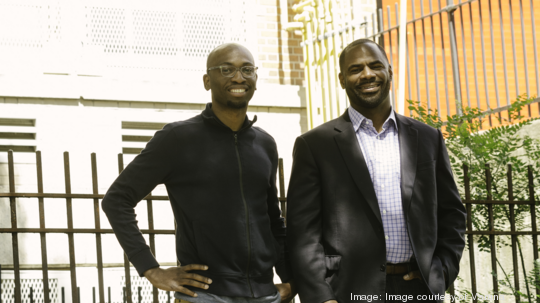
Clean water is paramount to the economy, and an Austin company, Varuna, is working to make its network of sensors and cloud-based software available for real-time monitoring for cities and municipalities.
Google recently chose Varuna as one of three Black-owned Austin startups for funding, awarding the company $100,000.
Seyi Fabode, CEO and co-founder, said he and his partner, Jamail Carter, Chief Commercial Officer and co-founder, started Varuna to bring “some of the tools and approaches we use on the power side to water quality. Flint was a trigger.”
Fabode worked in the utility industry for about 18 years before starting Varuna.
The name Varuna is the Vedic deity associated with water and the Sanskrit word for truth and enlightenment.
The company’s tagline is “our aim is to bring people insights to the fingertips of the hardworking employees of water utilities so they can provide clean water.”
Zebra mussels. Green algae. In Houston, a 6-year-old died from a brain-eating amoeba in an area city’s water supply.
Fabode got started with Varuna after the Flint water crisis but “had to put it on the shelf because life gets in the way.” He was traveling a lot for work and added a second child to his family.
“In December 2018, I decided it was time to bring it back off the shelf,” he said.
Fabode and Carter bootstrapped initially, and investors from their previous startup, a retail electricity marketplace, “gave us a little bit of money as well.”
Their previous company, Power to Switch, was “like Expedia but for energy,” Fabode said. Google’s support will help Varuna subsidize services to a few clients.
“As you can imagine, most of those clients that we’re subsidizing it for are cities that have minorities, people of color,” he said. “Along with deploying our product in those places, we’re going to find one or two people in the community to train in water operations so they can get jobs in the (industry).”
Varuna works with cities, municipalities and investor-owned utilities.
“We help water utilities make decisions that allow them to deliver clean water efficiently. We’re bringing truth to them,” he said.
Varuna has clients in Texas, New Jersey, Louisiana, Utah and Michigan. Varuna has an agreement with the largest water operator in Mexico, but that project is on hold because of Covid-19.
Varuna drops what it calls nodes into water systems to monitor water quality.
“When they clean the water at the treatment plant and they pump it into the pipes, they know everything’s going on within the treatment plant,” he said. “But once it’s in those pipes, those pipes are essentially blind spots for the water system. Within those pipes, you have some critical points where water systems will currently send a technician in a truck to go grab a sample. That technician will take the sample, bring it back to the plant where they test it.
“What we do instead of them having to send a guy out to those critical points, we put sensors in those locations. Those sensors pull data on the water quality back to our dashboards, which we make available to the operators so they know what’s going on at those locations in real time.”
Other companies focus on leakage and usage. “We choose to focus on quality and operations,” he said.
“One of the things I like to share is where we want to go with this. We currently don’t know what’s going on with our water and what we are trying to do with Varuna is digitally represent our physical water systems so that everyone, not just the utilities, so every citizen can say, ‘I know what’s going on because there’s a place they can go that in real time represents our physical infrastructure and quality.’"
It’s time to use technology for water.
“We have phones that tell us what the weather is and what it will be for the next day or so to a level we’re comfortable with. We need that for water, and that’s where we’re trying to go now,” he said.



